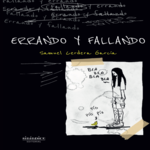Chris Cornell recuerda sus problemas con el alcohol
Chris Cornell remembers his battle with alcoholism

Sacado de // From –> http://portalternativo.com/ – http://www.alternativenation.net/
Chris cornell ha hablado con la gente de In The Studio (vía Alternative Nation) de su larga lucha contra la adicción al alcohol y como hoy día, una vez superados, vive una vida mucho más plena y productiva.
Una de las mejores cosas que me han pasado en estos últimos 5 o 6 años de mi vida y carrera es vivir un estilo de vida más sano tanto física como psíquicamente, el haber dejado el alcohol y todos los comportamientos que lleva aparejado. De golpe tenía energía para hacer todas las cosas que quería hacer.
Mi estilo de vida no me permitía hacer (muchas cosas) porque me metía en el estudio por la mañana a trabajar en una canción y me estaba ahí sentado de 2 a 3 horas bebiendo café y luchando contra la resaca.
Como cualquiera que haya tenido estos problemas, tuve que luchar contra ello. Era igual de propenso a pasarme o excederme como cualquiera. En un ambiente en el que eres un vocalista de rock o un tío en una banda de rock, nadie va a echarte si apareces borracho en tu trabajo. Así que fui, durante mucho tiempo, uno de los tíos más “está con todo el mundo” de Seattle que viajaba por el mundo y hacía música. Pero para mi, fue un periodo de espera hacia un duro momento de mi vida. Caí en la bebida para pacificarme e ignoraba los problemas de mi vida. Esa es una manera cobarde de afrontar las cosas. Sinceramente, debía ser la misma manera en que otra gente luchaba con ello, yo me acabé cansando.
Me desperté un día y pensé, “No tengo paciencia por como soy ahora. No hay ninguna razón para vivir como vivo ahora y que mi vida personal sufra o que siquiera tenga relaciones o una vida personal que no debería existir. Mi música está sufriendo y las capacidades que tengo no pueden ser utilizadas al máximo”. Yo siempre trataba de ir más allá y no simplemente cubrir el expediente. Tengo una buena actitud por el hecho de poder vivir de esto, créeme, porque no siempre fui capaz de verlo.
IN ENGLISH
In a new interview on In The Studio, Soundgarden frontman Chris Cornell discussed overcoming his battle with alcoholism and how it has changed his life and career.
“One of the best things for example that’s happened to me in the last 5 or 6 years or so in my life and my career, is just suddenly living a healthier lifestyle physically and mentally, like kicking out alcohol and all of the behavior that goes along with that. Suddenly I had the energy to do all of the things I wanted to do.”
He said that he has energy now to do things like acoustic shows, which is something he always wanted to do but couldn’t.
“My lifestyle just didn’t allow for it, because I would come into my studio in the morning to work on a song, and I’d sit around for 2 or 3 hours drinking coffee and battling a hangover.”
“Just like anybody else that has had those issues, I had to deal with it just like anybody else. I was just as suseptible to overdoing it or excess as anyone. In an environment when you are a rock singer, or a guy in a rock band, no one is going to fire you if you show up for your job drunk. So I was one of the more ‘together’ guys out of Seattle that was running around the world and making music, for a really long time. But for me, it was sort of laying in wait for a rough period in my life personally. I just fell into relying on drinking to just kind of pacify me, and I was ignoring my life’s problems. That’s sort of a cowardly way of dealing with things. Honestly, it was probably the same way that other people decide to wrestle with it, I just got tired of it.”
“I woke up one day and thought: ‘I have absolutely no patience for the way that I am now. There’s no reason why I have to be living like this, and that my personal life should suffer or I should even have relationships, or a personal life that shouldn’t exist. My music’s suffering, and the gifts that I’ve been given not being utilized to their fullest ability.’ I was always trying to push the envelope, not just trying to keep up. I have a good attitude toward the fact that I get to do this for a living, believe me, because I didn’t always get to.”





